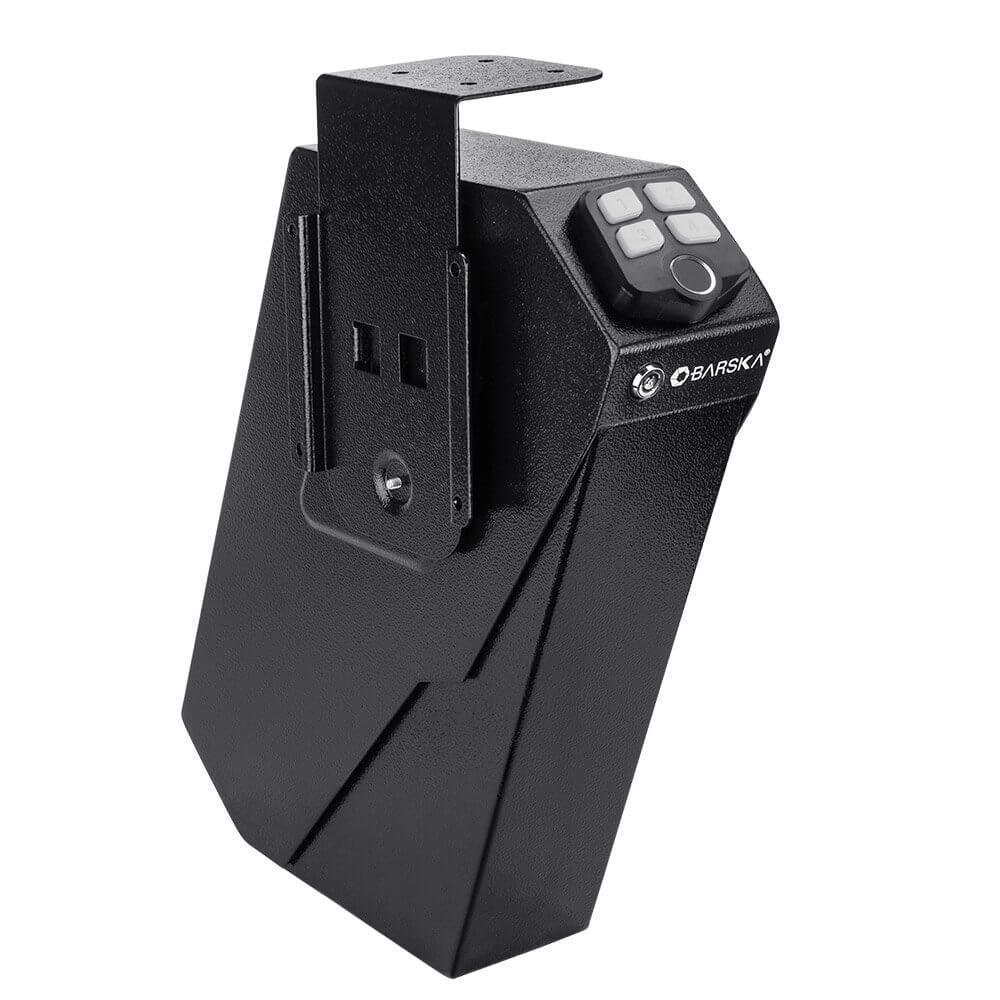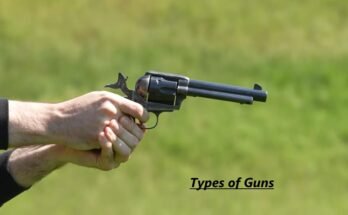As a gun owner, you want to make sure your firearms are stored safely and securely. One way to do this is with an e-lock. But are these locks reliable?
There have been some concerns raised about the reliability of e-locks, especially when it comes to gun safes. Some people have reported that their e-locks have failed, leaving their firearms vulnerable. However, it’s important to keep in mind that e-locks are just one type of lock available for gun safes.
There are also mechanical locks, which are generally considered to be more reliable. If you’re looking for a reliable lock for your gun safe, you may want to consider a mechanical lock instead of an e-lock.
So, Are E-Locks Reliable for Your Gun Safe?
Electronic safe locks can be reliable and offer several advantages over traditional mechanical locks, but their reliability depends on several factors, including the quality of the lock, maintenance, and the specific model. Here are some considerations regarding the reliability of electronic safe locks:
-
Quality and Brand: The reliability of electronic safe locks often depends on the brand and quality of the lock itself. Reputable manufacturers that specialize in security products, such as Sentry Safe, Yale, or Sargent and Greenleaf, produce electronic locks with higher reliability and security standards.
-
Type of Lock: Electronic safe locks come in various forms, including keypad locks, biometric locks, and electronic combination locks. Keypad locks tend to be more reliable compared to biometric locks, which can sometimes experience issues with fingerprint recognition.
-
Durability: Electronic locks are generally built to be durable and withstand wear and tear. High-quality electronic locks are designed to last for many years without issues.
-
Battery Life: The reliability of electronic locks depends on their power source, usually batteries. It’s crucial to replace the batteries regularly to ensure the lock doesn’t fail due to a lack of power. Some electronic locks also have backup keys or external battery terminals in case the primary batteries fail.
-
Programming and User Error: User error can sometimes lead to issues with electronic locks. Entering the wrong code, forgetting the code, or not following the manufacturer’s instructions can result in lockouts. It’s essential to carefully follow the user manual and maintain records of the lock’s combination or access credentials.
-
Maintenance: Routine maintenance, such as cleaning the keypad or biometric sensor and checking for loose connections, can contribute to the long-term reliability of electronic locks. Regular inspections and maintenance by a professional locksmith can also help identify and address potential issues before they become problems.
-
Security Features: High-quality electronic locks often include advanced security features, such as tamper detection, incorrect code entry limits, and time-delay functions. These features enhance the reliability of the lock by making it more resistant to tampering and unauthorized access.
-
Warranty: Many electronic safe locks come with warranties from the manufacturer. A warranty can provide peace of mind and assurance that the lock is reliable, as manufacturers typically stand behind their products.
In summary, electronic safe locks can be reliable if they are of high quality, properly maintained, and used according to the manufacturer’s instructions. It’s essential to choose a reputable brand and model, follow maintenance guidelines, and replace batteries as needed to ensure the lock’s long-term reliability. Additionally, keeping a backup key or access method in case of electronic lock failure is a good practice to prevent lockouts.
Video: Are E-Locks Reliable for Your Gun Safe? Everything You Need to Know About Electronic Locks
How Long Do Electronic Locks on Safes Last?
It is not uncommon for electronic locks on safes to last upwards of 10 years. However, it is important to keep in mind that the lifespan of an electronic lock can be greatly affected by the quality of the materials used as well as how often the lock is used. For example, locks that are made with higher quality materials and that see less frequent use will typically last longer than those made with lower quality materials or that see more frequent use.
Additionally, proper care and maintenance of an electronic lock can also help to extend its lifespan.
Do Electronic Safe Locks Fail?
Yes, electronic safe locks can fail, just like any other electronic or mechanical device. Failures can occur for various reasons, but the most common factors include:
-
Battery Issues: Electronic safe locks typically rely on batteries for power. If the batteries are depleted or not replaced in a timely manner, the lock can fail to function. Regularly replacing the batteries and ensuring they are of good quality is essential to prevent power-related failures.
-
Electrical Problems: Electronic locks contain sensitive electronic components that can be susceptible to electrical issues, such as power surges or voltage spikes. These issues can disrupt the lock’s functionality.
-
User Error: Entering the wrong code, forgetting the code, or not following the manufacturer’s instructions can result in lockouts or other problems with electronic safe locks.
-
Mechanical Failures: Some electronic locks have mechanical components that can wear out or break over time, leading to lock failures.
-
Software or Firmware Bugs: Electronic locks may have software or firmware that controls their operation. Bugs or glitches in this software can cause malfunctions.
-
Tampering or Forced Entry Attempts: If someone attempts to tamper with or force open the safe, it can lead to electronic lock failures. High-quality electronic locks often include tamper detection features to mitigate this risk.
-
Component Wear and Tear: Over time, the components of an electronic lock, such as the keypad or biometric sensor, can wear out or become less responsive, leading to failures.
While electronic safe locks can experience failures, it’s important to note that many of these issues can be prevented or minimized with proper maintenance and use. Regularly replacing the batteries, keeping backup access methods (e.g., a mechanical key) in a secure location, and following the manufacturer’s guidelines for use and maintenance can help reduce the likelihood of electronic lock failures.
Additionally, choosing a reputable brand and model known for its reliability and security features can contribute to the overall dependability of the electronic lock. In cases of lockouts or electronic lock failures, it’s advisable to contact a professional locksmith or the safe manufacturer for assistance in resolving the issue safely and legally.
Is a Mechanical Or Electronic Lock Better on a Gun Safe?
There are a few things to consider when deciding whether a mechanical or electronic lock is better for your gun safe. The first is the level of security you need. If you are looking for maximum security, an electronic lock is probably your best bet.
Electronic locks can be programmed with multiple codes and some even have fingerprint recognition, making them very difficult to break into. However, they do require batteries, so you will need to make sure you keep them fresh. Mechanical locks are not as secure as electronic ones, but they do not require batteries and are therefore more reliable.
They are also usually less expensive than electronic locks. Another thing to consider is how often you will be using the safe. If you plan on accessing it frequently, an electronic lock might be more convenient since you won’t have to fumble with a key every time.
On the other hand, if the safe will mostly just be sitting there collecting dust, a mechanical lock might be fine since you won’t need to worry about batteries dying on you. Ultimately, it comes down to personal preference and what your needs are. Both types of locks have their pros and cons, so it’s important to choose the one that’s right for YOU.
What Type of Lock is Best for Gun Safe?
There is no definitive answer when it comes to what type of lock is best for gun safe. It ultimately depends on your personal preferences and needs. Some people prefer a simple keyed lock, while others opt for a more sophisticated electronic keypad or biometric fingerprint scanner.
There are pros and cons to each type of lock, so it’s important to do your research before making a decision. Keyed locks are the most basic type of gun safe locking mechanism. They are typically very easy to use, and can be opened quickly in an emergency situation.
However, they are also the least secure option, as keys can be lost or stolen relatively easily. If security is your top priority, you may want to consider another type of lock for your gun safe. Electronic keypads are becoming increasingly popular for gun safes.
They offer a higher level of security than keyed locks, as they cannot be picked or tampered with as easily. Many electronic keypads also come equipped with backup batteries, so you don’t have to worry about losing access to your gun safe if the power goes out. The downside of electronic keypads is that they can be somewhat complicated to set up and use, particularly if you’re not familiar with technology.
Biometric fingerprint scanners offer the highest level of security available for gun safes. These locks require your unique fingerprint in order to open the safe, so there’s no risk of someone else being able to access your guns if they get their hands on your keys or code. Biometric locks can be more expensive than other types of locks, but they’re definitely worth the investment if security is a major concern for you.

Pros & Cons of Electronic Safe Locks
Most people have some sort of security system to protect their home or business. But are electronic safe locks really reliable? Here is a look at the pros and cons of using this type of lock.
Pros:
1. They’re more difficult to pick than traditional locks.
2. You can’t accidentally leave them unlocked.
3. They often come with features like keypad entry, which adds an extra layer of security.
4. Some models allow you to change the code, so you don’t have to worry about someone else guessing it.
5. They can be programmed to send you an alert if someone tries to tamper with them . 6 Electronic locks are becoming increasingly common, so there’s a good chance your insurance company will give you a discount for having one installed.
Cons:
1 . If the batteries die, you’re out of luck until you can replace them.
2 They can be expensive , especially if you need multiple locks for a business.
3. The software that runs them can be buggy , and may require frequent updates.
4. There’s always the possibility that something could go wrong and they won’t open when you need them to.
5. If someone does manage to break in , they could do serious damage to the lock itself , rendering it useless.
Conclusion
E-locks are electronic locks that can be used in place of traditional mechanical locks. They offer many advantages over traditional locks, including increased security and convenience. However, there are also some potential drawbacks to using e-locks, such as the possibility of malfunction or battery failure.
Overall, e-locks are a reliable option for gun safes and can provide peace of mind for gun owners.



